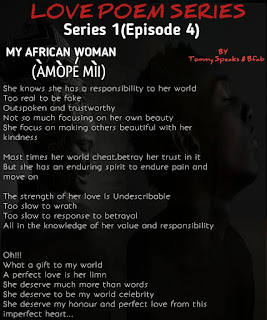Hello😁
In every organisation, there ought to be standardized rules and procedures. Everyone knows what they're doing because everybody is following the rules. This is quite expedient. Right?
Let us look into this together. Don't you think it is worth now just playing out what some of those downsides are in some situations?
Most times, following strict rules is slow moving, internally focused and disempowering. It is actually the case that the people inside a process, almost by definition find themselves following strict rules rather than thinking of the big picture. 🤔
Individuals should be allowed to figure out for themselves what to do as a way of coordinating. Procedures are important but may not be needed to tell people how to think about an issue where their thoughtful creativity can fill in that gap you know.
That's the way that the free market economy works too. We just give people an opportunity to collaborate and trade with whoever they like, and we use prices as a mechanism to figure out how best to make that trade work.
What are the benefits of this model? Well it's very responsive because we're allowing individuals close to the front line to make their own choices. What that means is that they're responding and adapting to what's happening in the business world. It's also very energizing if you're in charge of making your own choices as it becomes very rigid if on the other hand.
In allusion to practice in the business context, i'm going to give you a nice a nice METAPHOR from the world of traffic planning. Get your refreshing beverage and enjoy the story😁
Now, there was a very famous chap from Holland a few years ago. Well, he was famous within his world. His name was Hans Monderman, and he was a Dutch road traffic engineer. He died a few years ago, but he was quite influential in terms of designing some very well regarded experiments in the design of town planning systems back in the late 90s and early 2000s.
He said to himself, the trouble with our road systems, particularly in a developed country like, like Holland, like the U.K, is that we've created roads which are just too complicated, which have got too many signposts, too many traffic lights, too many rules. So, whenever there's an accident we create even more signposts, and even more rules to make sure that the accident doesn't happen again. We're creating gridlock. What we should be doing is going in the exact opposite direction. So he said, to make our road systems safer, and more smooth, we need to make them more dangerous. We actually have to strip out an awful lot of the clutter that had been created by well-meaning planners. So, he managed to persuade a couple of towns and municipalities in Holland, and one of them was this town in, in northern Holland, called Dracton. He managed to persuade them to try his slightly theoretical ideas.
He said to them, take your traditional town centers with particular ones which are really kind of gridlocked, and strip out all of the clutter. Strip out all the lights and all the markings, and create an open space. He called it Shared Space. We won't have a separate road and pavement.
Now imagine you are a driver and you are approaching an intersection where suddenly nobody's telling you what to do. What is our response? It's pretty obvious what your response is. You basically take stock, you sort of slow down a little bit. You look around you. You figure out a way through that intersection, without hitting anybody.
What he predicted exactly happened. They did a very careful before and after studies in this town and they discovered that, not only was the traffic speed through these intersections created but actually there were no additional accidents. So the town planning metaphor links, hopefully in a fairly clear way, what you as a leader should do in your organisation. It's also important that as a worker in an organization, you must have positive ideas for the success of your company too so that it won't be in jeopardy due to mediocrity.
Really, this notion can make our actions visible to one another in a way that actually helps everybody to coordinate more effectively. And in fact, indeed to make the world a better place. So, incorporate this as a leader.
End of story😊😊😊


















